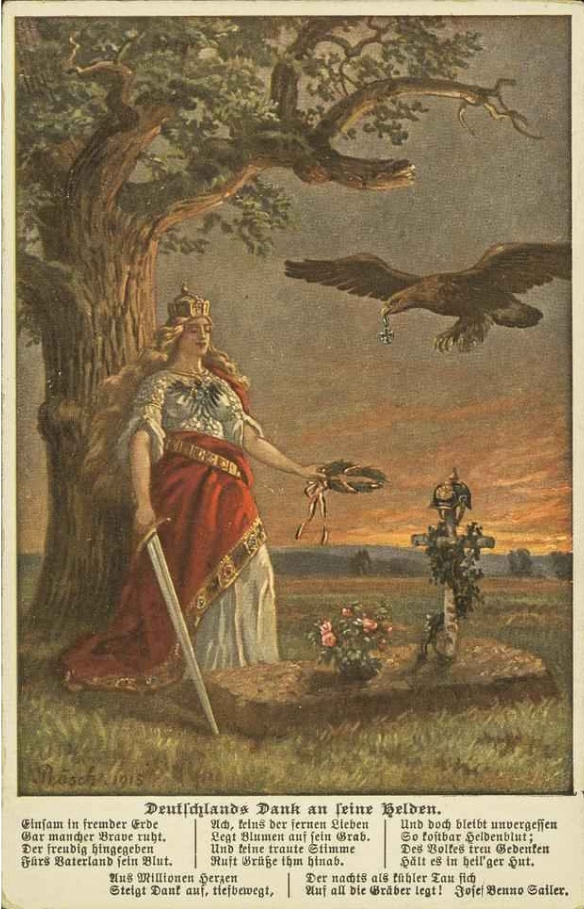Source
Germany gives thanks to her heroes. Lonely in a foreign soil, Alas, none of the distant loved ones And yet it remains unforgettable From millions of hearts
many a brave man rests.
Who
joyfully gave
his blood for the Fatherland.
put flowers on his
grave.
And no familiar voice
calls down greetings to him.
so precious is the blood of
heroes;
the people's loyal memory
It keeps in sacred
trust.
Gratitude arises, deeply
moved,
Which at night as a cool dew
Blankets all the
graves.
Source: Postcard, artist: Ludwig Rösch, poem: Josef Benno Sailer, 1916. Historische Bildpostkarten - Universität Osnabrück, http://nbn-resolving.org/urn:nbn:de:gbv:700-2-0011069-0